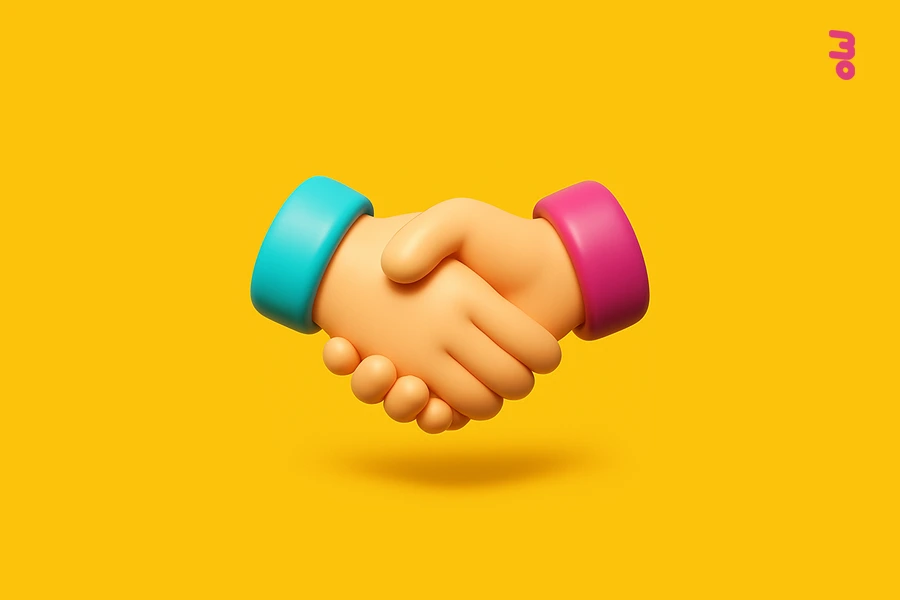Quiz: What Type of Friend Are You?

Why do we stay friends with some people for decades while drifting apart from others after just a couple of months? It’s not just about shared interests or compatible schedules. Each of us has our own friendship style – a set of habits and behavioral patterns that determine how we build close relationships. Our quiz will help you figure out what type of friend you are and understand why your friendships unfold the way they do.
What Makes Us Good Friends?
A good friend isn’t someone who checks all the boxes on an ideal qualities list from a glossy magazine. Real life works differently. Some people need a friend who’ll drag them out to a party on Friday night, while others need someone who’ll just sit quietly beside them after a rough day.
The basics are universal, of course: reliability (if you promised to help with moving, show up), honesty (better a harsh truth about a bad haircut than polite lies), ability to keep secrets (stories about exes shouldn’t become common knowledge among mutual friends). But then the nuances begin.
Some friends are brilliant at entertaining and lifting spirits. They know all the new bars in town, always have concert tickets, and they’re the ones texting the group chat “Emergency hangout, heading to the country house to grill meat.” Others are masters of deep conversations. You can spend hours with them discussing whether to change jobs or dissecting your latest conflict with your parents. Still others silently show up with pizza and wine when everything’s falling apart, and they know exactly when you just need someone to be there.
Problems start when we expect someone to provide what’s not part of their “friendship functionality.” Demanding deep philosophical conversations from your party-friend is like expecting a cat to start fetching slippers. Maybe you’ll get lucky, but it’s better not to count on it.
What Does Our Friend Type Quiz Measure?
The quiz focuses on your natural behavior in friendships. Not on what kind of friend you’d like to be in an ideal world, but on what you actually do. How often do you text friends first? What do you suggest when a friend is upset? How do you react to requests for help?
The questions are built around specific situations. For example: a friend calls at 11 PM saying they fought with their partner. You: a) immediately offer to come over; b) listen carefully on the phone and give advice; c) suggest meeting tomorrow to discuss everything; d) distract them with funny stories and memes.
Each answer option corresponds to a certain friendship style. The quiz doesn’t evaluate which style is “better” or “worse” – they’re just different. Just like teamwork needs idea generators, executors, and critics, friendship needs people with different approaches.
The quiz algorithm analyzes patterns in your answers. If you tend to choose options related to emotional support and deep conversations, you’ll get one result. If your answers lean toward shared activities and entertainment, you’ll get another. It’s important to answer honestly, based on how you usually act, not how you “should” act.
Four Friend Archetypes in the Quiz: Which One Could You Be?
Each of us gravitates toward one of four main friendship styles, though in different situations we might display traits of all types. The quiz determines your dominant style – the one that appears most often and feels most natural. Meet the types and try to guess yourself before taking the test.
The Rock Friend
This is someone you can rely on in any situation. Their phone has numbers for all the right specialists – from a good dentist to a lawyer. They remember when you have a job interview and text that evening to ask how it went. If you get sick, they’re the ones bringing medicine and ready-made soup.
Rock friends don’t like drama and empty talk. They’re practical and solution-oriented. When they hear about your problem, they immediately start thinking how to solve it, not just sympathizing. Sometimes this can be irritating – you want to just vent, but they’re already making an action plan. But when you really need help, you won’t find a better friend.
The downside of such friends is they can seem emotionally cold. Don’t expect long conversations about feelings or spontaneous adventures from them. Their friendship shows through actions, not words.
The Life of the Party Friend
This type turns any meetup into an event. They always have weekend plans – not just “let’s hang out,” but specific proposals with time and place. They know about all the interesting events in town, have “ins” to exclusive parties, and they’re the ones organizing group chats for planning trips.
Life of the party friends are energizing. After hanging out with them, you feel refreshed even if you only slept four hours. They can find reasons to celebrate on an ordinary Tuesday and drag even the most committed introverts out of their homes.
The flip side is it’s hard to have serious conversations with them. Trying to discuss work problems might end with a suggestion to “forget it and go dancing.” They don’t always understand that sometimes people need peace, not another party.
The Therapist Friend
These people have an amazing ability to listen and truly hear. They remember all the details of your stories, notice mood changes from a single text, and always know what to say to make things better. You can talk to them about anything – from existential crises to complicated relationships with parents.
Therapist friends create a safe space for openness. They don’t judge, don’t give unsolicited advice, and know how to keep secrets. After talking with them, clarity often comes – they help organize thoughts just by asking the right questions.
The problem is such friends often take on too much of others’ emotions. They can burn out from constantly being a shoulder to cry on. And sometimes you want them to just say “forget about it” instead of another deep analysis of the situation.
The Adventure Friend
This is the person who might text at 2 AM: “Found dirt-cheap tickets to Istanbul for tomorrow, let’s go?” And the most surprising thing – you actually want to go with them. Adventure friends expand the boundaries of your world. Thanks to them, you try things you’d never dare attempt alone.
They don’t accept routine and are always seeking new experiences. Today they’re obsessed with rock climbing, next month it’s Thai cooking, the month after that it’s learning sign language. They dive headfirst into each new passion, infecting others with their enthusiasm.
The difficulty is it’s hard to rely on such friends for everyday matters. They might forget about your meeting because they spontaneously went surfing. Their life is constant motion, and not everyone can keep up with that pace.
Cultural Differences in Understanding Friendship and Their Reflection in the Quiz
Our quiz takes into account that the concept of friendship varies greatly across cultures. What’s considered a manifestation of close friendship in one country might be perceived as a violation of personal boundaries in another.
In the US, for example, friendship is often built around shared activities. Americans visit each other for barbecues, exercise together, meet on weekends. Conversations usually stay on a surface level – about work, hobbies, vacation plans. Deep personal topics are discussed with therapists, not friends.
In Russia, it’s the opposite. Friendship without heart-to-heart conversations in the kitchen until dawn isn’t friendship, it’s just being acquaintances. Russian friends know everything about each other: from childhood traumas to intimate life details. Shared activities are secondary – the main thing is having something to talk about.
The Japanese concept of friendship includes “honne” and “tatemae” – true feelings and social mask. Even close friends rarely are completely open with each other. But they masterfully read non-verbal signals and understand each other without words. Japanese friends can spend years going to karaoke or nomikai (after-work gatherings) together and consider this a manifestation of closeness.
In Latin American countries, friendship is often inseparable from family. Friends participate in family celebrations, know all relatives, and the boundary between “friend” and “almost relative” is blurred. Physical contact – hugs, shoulder pats – is a natural part of friendly interaction.
The quiz is adapted for different cultural contexts. Questions are formulated to account for these differences. For example, the suggestion to “hug an upset friend” would be natural for a Latin American, neutral for a Russian, and possibly awkward for a Japanese person. Results are interpreted considering cultural background – what means emotional coldness in one culture might be a manifestation of respect for personal space in another.
When you know your strengths and limitations, it’s easier to find friends who complement them. And understanding cultural differences helps you not take personally what’s simply a different style of expressing friendship.
Questions Overview 🧠
- Show up at their door with ice cream and tissues within 30 minutes
- Send them a playlist titled 'Better Without Them' and plan tomorrow's distraction activities
- Call them immediately and let them vent for hours while you validate their feelings
- Flood their phone with memes and TikToks until they crack a smile
- The one who makes sure everyone's dietary restrictions are accommodated
- The one dropping pins of cliff jumping spots and underground clubs
- The mediator when two friends want different destinations
- The one creating custom bingo cards for the road trip
- Secretly pack a backup outfit in your car just in case
- Encourage them to go even bolder - confidence is everything!
- Have a gentle conversation about what message they want to send
- Hype them up regardless because they look happy
- Stand guard at the door and handle anyone who asks where they went
- Sneak them out the back for an impromptu midnight drive
- Use grounding techniques you learned specifically for moments like this
- Turn it into a bathroom party with just your inner circle
- Run a subtle background check and keep the receipts just in case
- Plan elaborate group hangs to test the new person's limits
- Ask thoughtful questions that help your friend see things clearly
- Kill them with kindness while keeping the mood light
- DM everyone individually to make sure they're okay
- Drop a random 'So anyway, who wants to go skydiving?'
- Suggest a group video call to talk things through
- Send a cursed image with no context to break the tension
- Tell them the flight is 2 hours earlier than it actually is
- Turn getting to the airport into a Fast & Furious-style race
- Help them identify why they're always late and work on strategies
- Make a TikTok-style countdown with choreographed dance moves
- Physically confiscate their phone for the night
- Dare them to text their crush instead - redirect that energy!
- Talk them through what they're really feeling right now
- Start an impromptu karaoke session to distract everyone
- Create separate support systems for each until they cool down
- Lock them in an escape room together and let chaos solve it
- Facilitate a structured conversation when they're both ready
- Plan a fun group activity where they'll naturally reconnect
- Stay up monitoring and ready to intervene if needed
- Comment 'Let's go on a sunrise hike instead'
- Send a voice note acknowledging their pain without judgment
- Match their energy with increasingly absurd story replies
- Never leave their side and become their social shield
- Find the host's pet and create a mini quiet zone
- Check in regularly and respect whatever they need
- Introduce them to the other introverts you've already identified
- Help them update their resume and set up job alerts immediately
- Celebrate their courage with an 'unemployment party'
- Discuss the pros and cons while validating their frustration
- Create a vision board of their dream career over wine
- Research the safest shops and aftercare procedures
- Suggest making it a tattoo road trip to that famous artist 3 states away
- Make sure everyone's truly ready and not just peer pressured
- Design 20 hilarious alternatives including temporary versions
- Start researching their new city to visit and keep them safe
- Plan an epic cross-country road trip to help them move
- Process the news with them and discuss staying connected
- Throw the most legendary going-away party ever conceived






